Virtual Learning Through the Eyes of an Educator
As a direct effect of the spread of the COVID-19 outbreak, most, if not all, schools in the U.S. were forced to quickly transition to a drastically different learning model. Last spring, this transition in Haverford’s case was to a strictly online, mostly independent version of the normal curriculum. This was a difficult change for both students and teachers alike.
This model was improved in preparation for the 2020-2021 school year. Now classes are being held both on Zoom and in-person, rather than having individual work without teacher supervision, which was the format from March to June of 2020. Although the Zoom classroom for remote learning allowed for a greater sense of community, structure, and generally a better replica of in-school teaching, it was not immune to challenges.
In order to understand the effect of this transition on Haverford School District teachers, I conducted interviews in which I asked different grade-level teachers their thoughts on the model of remote learning. The teachers included in the following article are Mrs. Maggie Bieter (a first-grade teacher from Chestnutwold), Mr. Mike Reynolds (a third-grade teacher from Chestnutwold), Mr. Joseph Brennan (the conductor of both middle school orchestras as well as the high school’s orchestra and string ensemble), and Mr. Nate Oxman (a sixth-grade language arts teacher at HMS).
Have there been any significant moments in which technology has failed you?
Mrs. Bieter: “There have been a few times this school year when technology has been a challenge. For example, on Zoom when I tried to share my screen so the students could see what I was presenting and teaching, the screen just appeared black on the students’ Chome Tablets and they couldn’t see anything I shared. Luckily, the technology department helped right away and was able to figure out the problem for me! Also, at times the screen freezes and the students tell me about the silly faces I am making. We all laugh about it. Overall, the technology has worked very well on my end.”
Mr. Reynolds: “Yes, there have definitely been some times that the technology hasn’t worked. It’s really hard to hear some of the students on Zoom. We’ve had some success with everyone turning off their cameras so we can hear some students when they speak.”
Mr. Brennan: “Not really. Any technology failures have been internet service interruptions on my end.”
Mr. Oxman: “Oh man! I would guess that if you polled all of the teachers in the district, the number one worry on the first day of school was technology and whether or not it would work the way it was supposed to work! For me, the answer was no. Somehow I created two Zoom links when I was setting up my meeting. I was in one room and my homeroom students were trying unsuccessfully to join another room. This was the students’ first experience of their HMS career. Think about that! They were frantically trying to get into their homeroom! I figured it out, but it took 22 minutes to do so!”
Other than technological problems, have there been any notable challenges in teaching class virtually?
Mrs. Bieter: “I miss giving my first graders hugs in person, getting to know them and teaching them face to face.”
Mr. Reynolds: “Lots of challenges. Third graders just aren’t adept at using technology. Usually by the end of the year, we help third graders learn to use their devices pretty well, but it’s so hard to help them learn when we can’t be there to show them. Also, the students are using Chromebooks, but I don’t have a Chromebook. So I can’t really tell them how to work their Chromebook since I just don’t know. Things work differently on my MacBook.”
Mr. Brennan: “It is generally agreed among music educators that it is impossible to run rehearsals with students playing and interacting in a virtual setting. Ensemble directors are having to defer to alternatives to ensemble rehearsals and performances.”
Mr. Oxman: “Yes! [I greatly] value building a classroom community where students feel safe and comfortable, a class they’re eager to come to each day and freely share their thoughts and opinions. That is incredibly challenging on Zoom. Many of our sixth graders are reluctant to turn their cameras on and even more reluctant to participate. So building a great classroom community has been very tough.”
How much time did it take for you to get comfortable with the new learning environment?
Mrs. Bieter: “I became comfortable with the new learning environment relatively quickly. Since so much of the time has been spent together on Zoom and setting up the Canvas courses so the students can work independently, I needed to learn how to use and to be comfortable with these platforms right away. After a couple of weeks, I felt like my students and I got into a good schedule and they are able to do things more independently now. I do miss teaching in the regular classroom setting.”
Mr. Reynolds: “I’ve made websites before so using Canvas wasn’t that difficult for me to learn, but I definitely recognize how it could be challenging for some that don’t have much background in that sort of thing. Teaching without being in front of the students is difficult. Just as I’m sure learning is difficult too.”
Mr. Brennan: “It has taken a lot of time for me, maybe because I have been teaching for so long and have developed my techniques and methods. To be honest, I have not acquired a level of comfort with the new learning environment only since I cannot deliver anything close to the real thing and I feel the students are missing out on the experience of being student musicians.”
Mr. Oxman: “I would say that on a scale of 1 to 10, 1 being scared to death of Zoom and Canvas and 10 being besties with Zoom and Canvas, I entered the school year at about a 3. I was totally comfortable using Google Meet and Google Classroom in the spring and I use technology all of the time during a normal school year, but learning how to use Zoom, and especially Canvas have been really tough. After, let’s see, three weeks of school, I’m probably at a 5. I can bounce back and forth between two monitors and 12 tabs during class, but creating and posting lessons and resources on Canvas is still tough. So I’m not completely comfortable yet, but I’m taking baby steps.”
Before school started, what were you dreading most about teaching virtually? What were you looking forward to?
Mrs. Bieter: “Before school started, I was nervous about getting to know my students on Zoom and I felt unsure if I would be able to get to know their personalities, interests and likes/dislikes. Luckily, I have a wonderful class and their amazing personalities shine through, even on Zoom! Before school started, I was looking forward to teaching at home because I created a cozy and inviting learning space in my basement.”
Mr. Reynolds: “I was nervous that the technology wouldn’t work like it should. And it doesn’t. If we could have more class discussions, it would be ideal, but Zoom just doesn’t work well enough for that to happen.”
Mr. Brennan: “I dreaded, and still do, how to connect with students individually as I normally would in the rehearsal room, both musically and socially. With teaching virtually, although it’s not the same as being in the room, I still look forward to the interactions to the degree that it’s possible.”
Mr. Oxman: “Before school started, I was dreading the inevitable, that these HMS newbies were going to have to start their three years here online, behind a computer! [I always like to try] to make my students feel less stressed on the first day of school and, like I said before, to want to come back the next day. I think I was able to do that through Zoom, but it was tough. Along the same lines, I was looking forward to meeting the students and doing anything I could to help lower their stress level about Zoom, Canvas, HMS, virtual learning, etc.”
Any other noteworthy stories/experiences from virtual learning?
Mrs. Bieter: “I am proud of my students for having a positive attitude towards virtual learning and for making the most out of a difficult situation. I am also proud of myself for learning a lot about technology and for working hard to make learning fun and engaging for my students.”
Mr. Oxman: “Well, I’m a big brain break fan. Brain breaks are pretty darn boring through Zoom. We tried to do a rock, paper, scissors challenge during the first week, but it failed miserably. Way too many glitches and a ton of lag!”




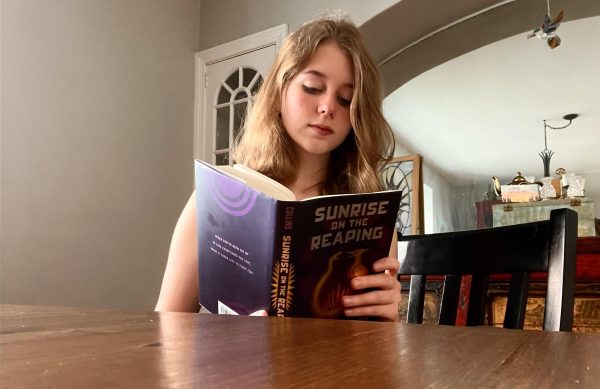
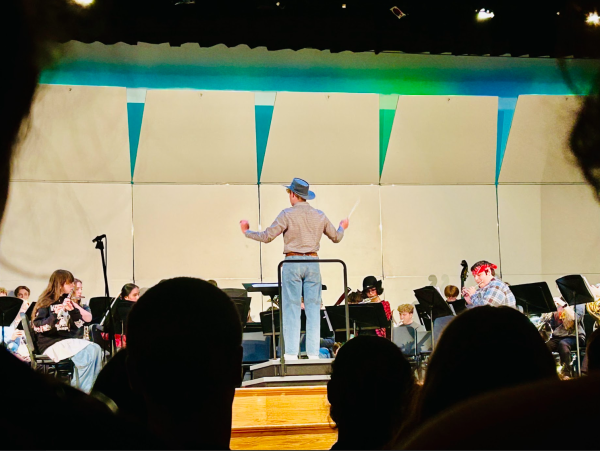

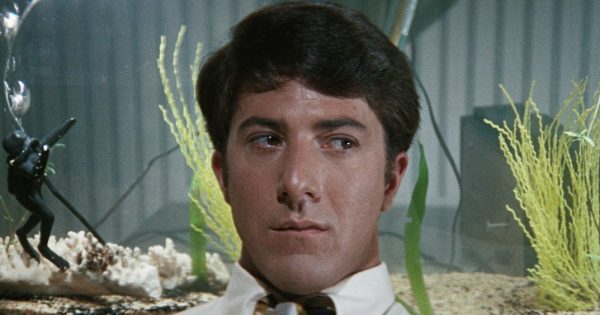
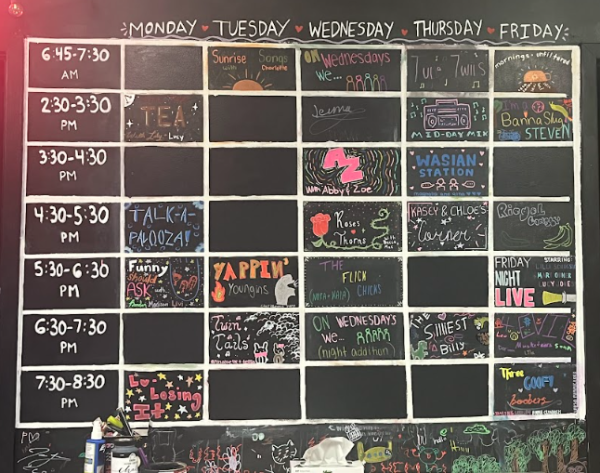

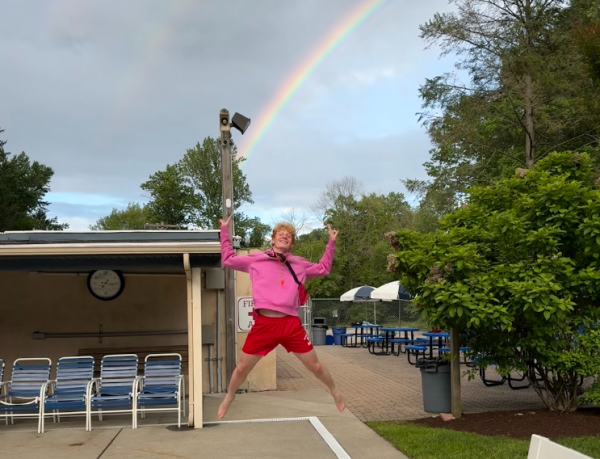
Rachel Plasky • Nov 14, 2020 at 10:57 pm
Very interesting to hear all of these perspectives, especially from the lower schools.